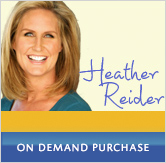
When asked about the expected challenges of old age older adults report experiencing them at lower levels than younger adults expected when they grow old
However, older adults report experiencing fewer of the benefits of aging that younger adults expect to enjoy when they grow old, such as spending more time with their family, traveling more for pleasure, having more time for hobbies, doing volunteer work or starting a second career.
What does old age mean?
68 –well that was the average answer. However, 18 to 29 year olds believe you are old at 60. Middle-aged respondents say 70, and respondents 65 and say you do not become old until 74.
When asked how old they would like to live too, the average proposed age is 89. Interestingly, a 2002 AARP survey found 92 the desired age.
Nearly two-thirds of 18 to 29 year olds believe that when someone "frequently forgets familiar names," that person is old. Less than half of all adults aged over 30 agree.
All generations agree that failing health, an inability to live independently, an inability to drive, difficulty with stairs are an indicator of old age.

Grow Older, Feel Younger It seem’s you're never too old to feel young. According to the survey, the older people get, the younger they feel--relatively speaking.
Half of 18 to 29 year-olds, feel their age, a quarter say they feel older and another quarter feel younger. By contrast, 60% of over 65’s feel younger than their age, 32% feel exactly their age and just 3% who say they feel older. Infact, the gap between chronological and "felt age" widens widened. Nearly half of over 50’s feel at least 10 years younger than their actual age. A third of 65 to 74 year olds feel 10 to 19 years younger and one-in-six feel at least 20 years younger.
Older people are just as happy as young people. Good health, good friends and financial security--by and large predictor of happiness. The main difference is that older – often widowed – people less often associate happiness with marriage.
Older adults also have a count-my-blessings attitude.45% of over 75’s report turned out better than they expected, while just 5% reported worse.
The Good and Bad's of Getting Old

There are challenges with old age. About a quarter of over 65’s experience memory loss.and about 20% have a serious illness, are not sexually active, or often feel sad or depressed. About one-in-six report they are lonely or have trouble paying bills. One-in-seven cannot drive. One-in-ten say they feel they aren't needed or are a burden to others. With the exception of sexuality, these problems were worse in people with a low income. Sexual challenges were not correlated with income.These figures are far lower than younger adults expected when they are older. However, problems increased in the 80 and beyond age group. Yet the vast majority of over 80’s have made peace with their circumstances. Only 1% of over 85’s report their lives turned out worse than expected.

The best thing about growing old is being able to spend more time with family members. 28% of over 65’s value the chance to spend more time with family, and an additional 25% value time with their grandchildren. Financial security, was a distant third at 14%. As 13% of the US population is over 65 compared with 4% in 1900..By 2050, about one-in-five Americans will be over age 65, and about 5% will be ages 85 and older, up from the present 2%, according to Pew Research projections,The Good News?Shakespeare claimed that in old age we return to childhood and are dependent on our children.It seems 14% of children rely on their over 65 year old parents, while 12% rely on their children.The majority, 58%, state neither relies on the other, and 13% state they rely on one another equally.






Post a Comment